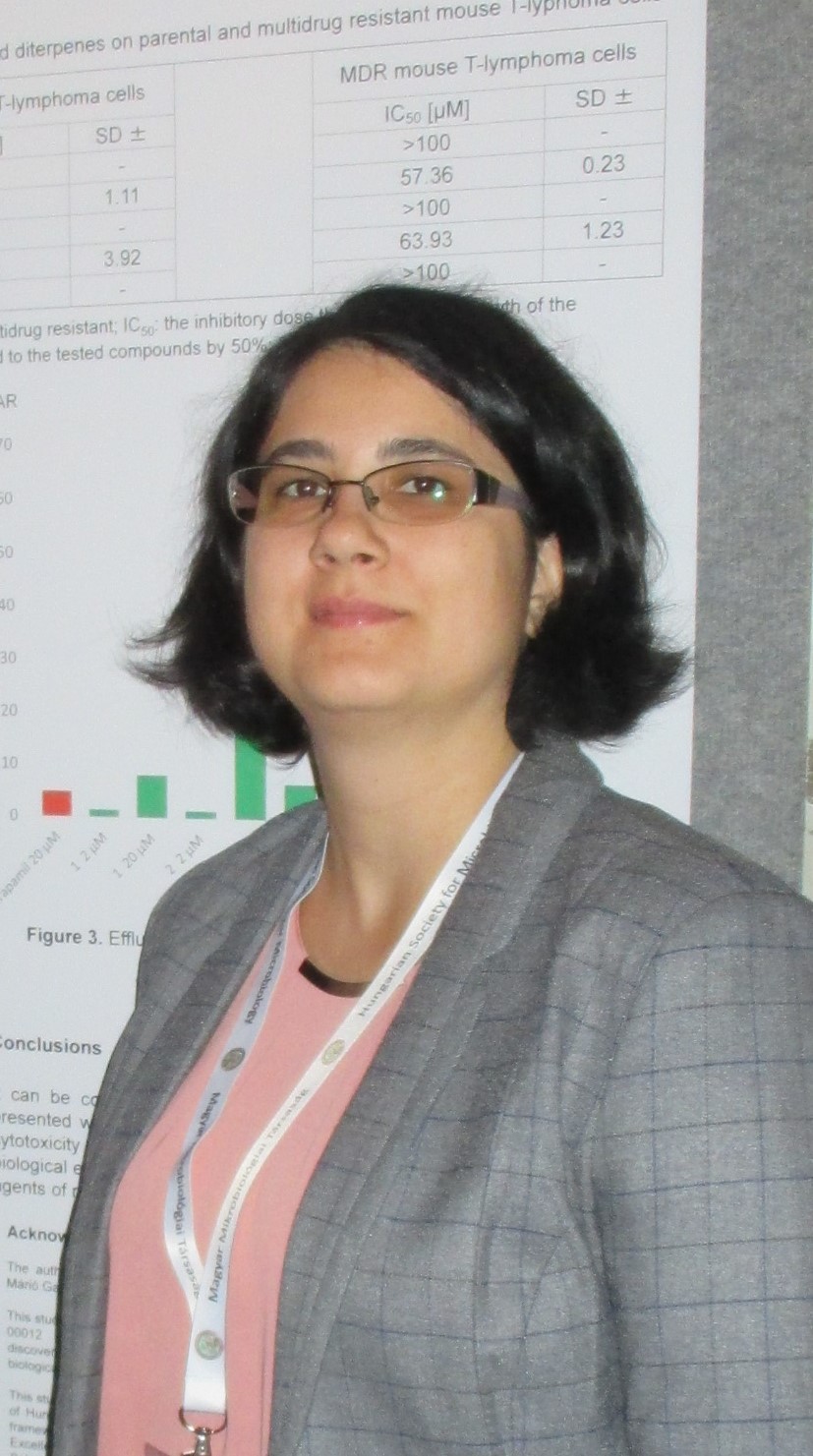Dr. Mosolygó Tímea Ph.D.

email: mosolygo.timea@med.u-szeged.hu
Phone: +36 62 546-112
* * *
Research areas:
Chlamydiae are obligate intracellular bacteria that cause infections which are common throughout the world. Chlamydophila pneumoniae is an important respiratory tract pathogen; it causes community-acquired pneumonia, bronchitis and sinusitis. Different serovariants of Chlamydia trachomatis cause a wide range of diseases, including blinding trachoma, urogenital tract infections leading to urethritis, cervicitis and proctitis, and systemic lymphogranuloma venereum disease. Although antibiotics are effective in treating chlamydial infections, the lack of obvious symptoms has the consequence that many infections remain untreated potentially leading to complications characterised by inflammatory pathologies. The immunity to these pathogens is not effective, chlamydial infections display high rates of recurrence and have long-term consequences causing a serious public health problem. Understanding the immunological basis of immunity to chlamydiae will provide an indispensable knowledge for the design of a vaccine against diseases caused by these pathogens.
- - Our goal is to improve our current understanding of the pathological immune response to infections and re-infections with chlamydiae.
- - Our other research area is the vitamin D3 (cholecalciferol) and its role during infections with C. pneumoniae.
- - Our further research topics are the identification of new antichlamydial agents and their examination in vitro (cell cultures) and in vivo (in mice).
Selected publications:
- Mosolygó T, Korcsik J, Balogh EP, Faludi I, Virók DP, Endrész V, Burián K. Chlamydophila pneumoniae re-infection triggers the production of IL-17A and IL-17E, important regulators of airway inflammation. Inflamm Res. 2013 May; 62(5):451-60.
- Mosolygó T, Spengler G, Endrész V, Laczi K, Perei K, Burián K. IL-17E production is elevated in the lungs of Balb/c mice in the later stages of Chlamydia muridarum infection and re-infection. In Vivo. 2013 Nov-Dec; 27(6):787-92.
- Mosolygó T, Faludi I, Balogh EP, Szabó AM, Karai A, Kerekes F, Virók DP, Endrész V, Burián K. Expression of Chlamydia muridarum plasmid genes and immunogenicity of pGP3 and pGP4 in different mouse strains. Int J Med Microbiol. 2014 May;304(3-4):476-83.
- Mosolygo T, Szabo AM, Balogh EP, Faludi I, Virok DP, Endresz V, Samu A, Krenacs T, Burian K Protection promoted by pGP3 or pGP4 against Chlamydia muridarum is mediated by CD4 cells in C57BL/6N mice. Vaccine 32:(40) pp. 5228-5233. (2014)
- Emese Petra Balogh, Tímea Mosolygó, Hilda Tiricz, Ágnes Míra Szabó, Adrienn Karai, Fanni Kerekes, Dezső P. Virók, Éva Kondorosi, Katalin Burián. Anti-chlamydial effect of plant peptides. Acta Microbiol Imm H 61:(2) pp. 229-239. (2014)
